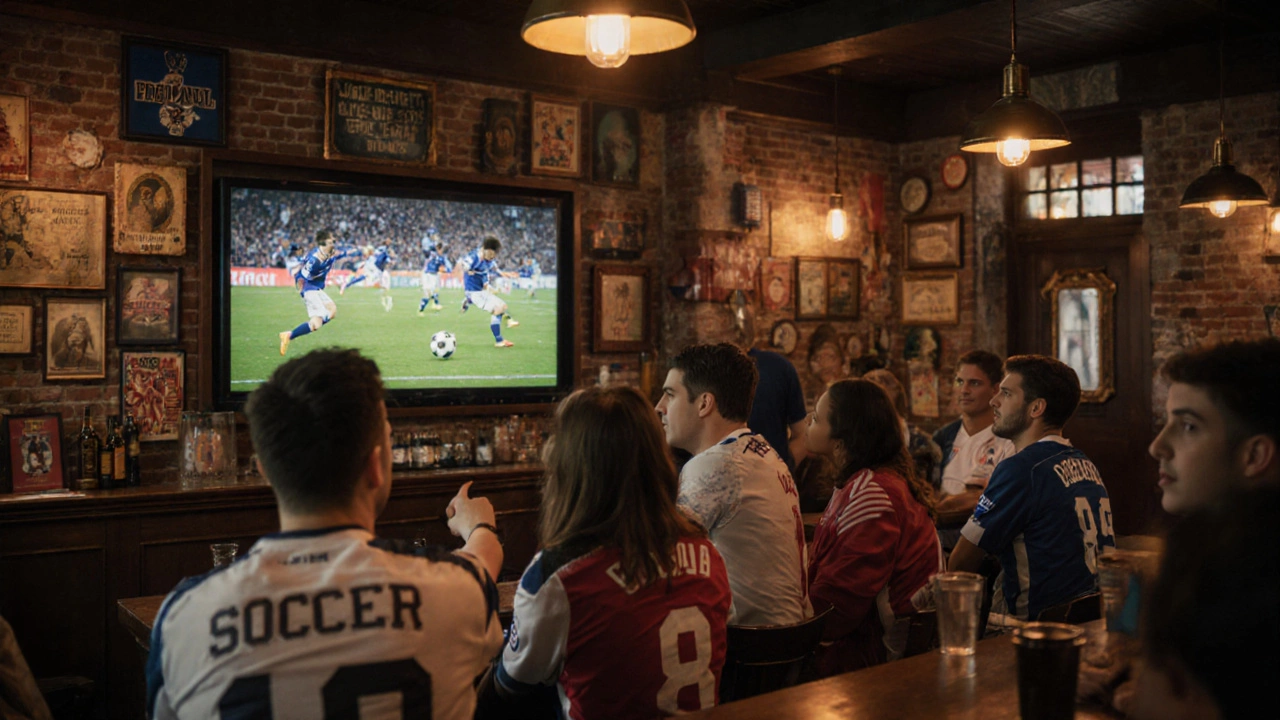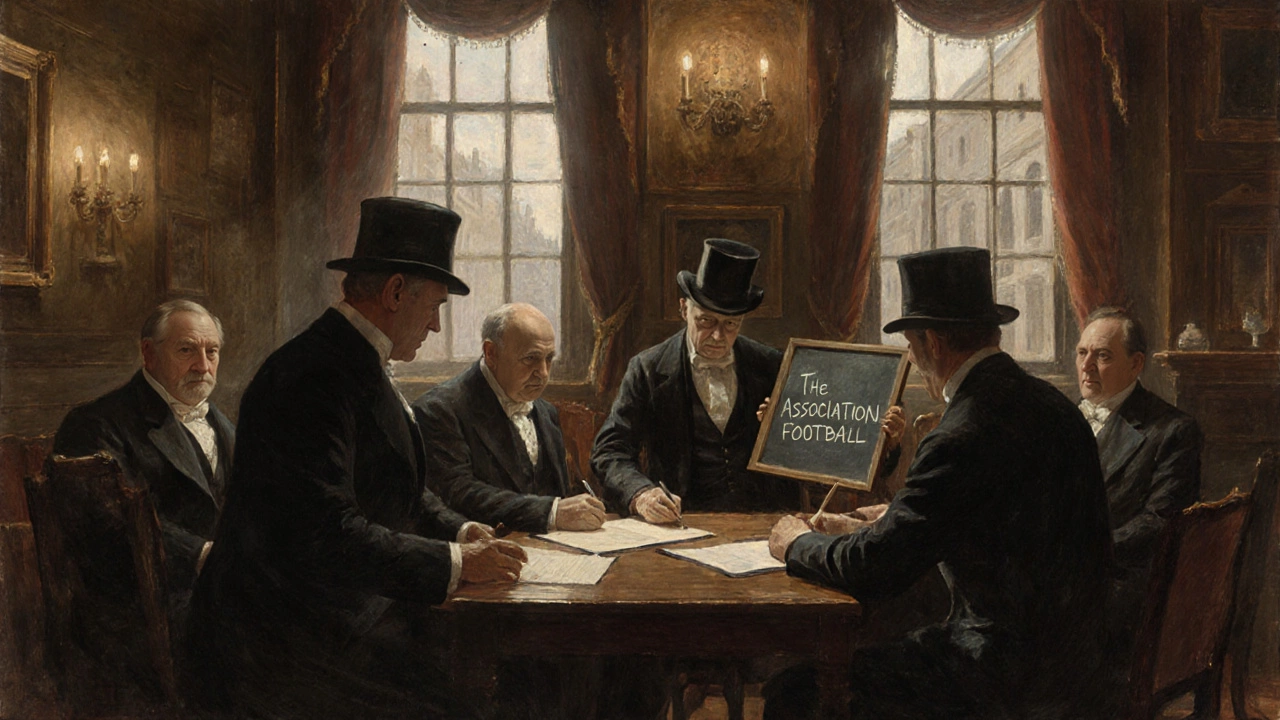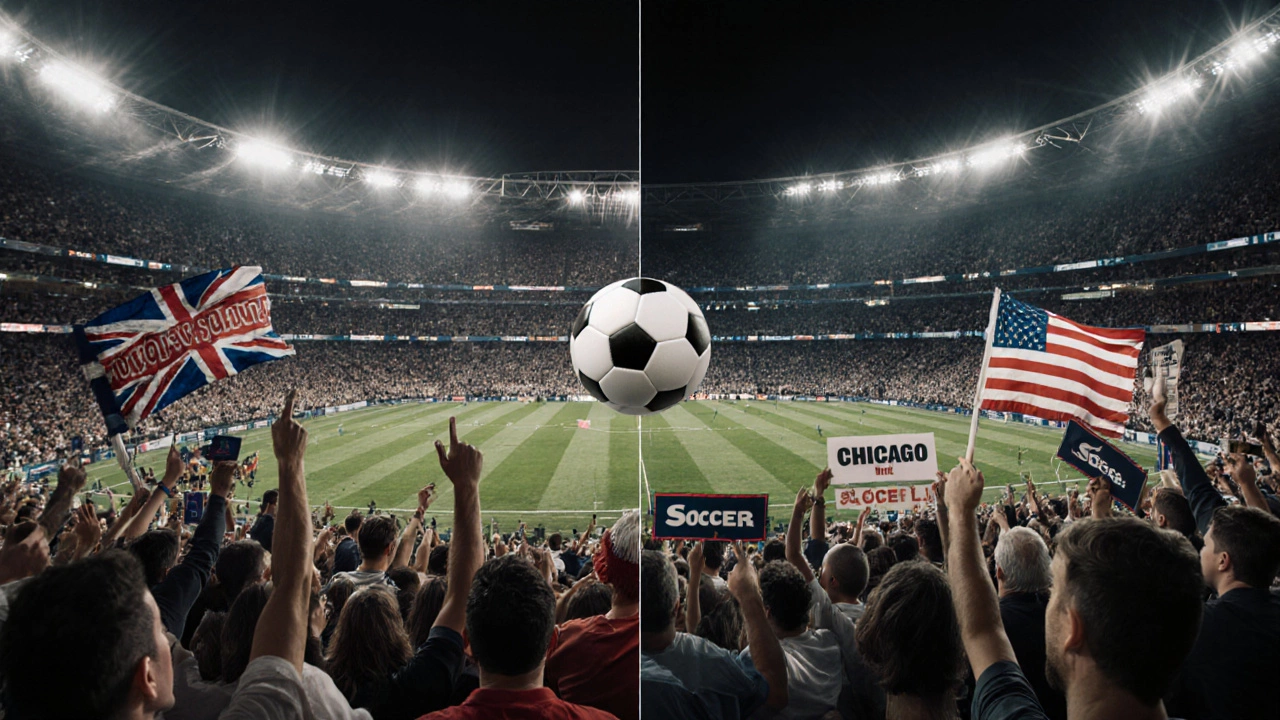What Do British People Call Soccer? The Real Name and Why It Matters

Ask a British person what they call the game Americans call soccer, and they’ll look at you like you just asked if the sky is blue. It’s not soccer. It’s football. Plain and simple. But why does this difference even exist? And why does it still cause confusion - even in 2025?
The British Call It Football - Not Soccer
In the United Kingdom, the sport played with 11 players per side, a round ball, and two goals at either end of a large field is called football. That’s it. No extra words. No abbreviation. No explanation needed. If you say "soccer" in England, Scotland, Wales, or Northern Ireland, people will understand you - but they’ll also think you’re American, Australian, or Canadian. It’s not wrong. It’s just not the local term.
The word "soccer" actually came from Britain. Back in the 1800s, when different versions of football were being formalized, students at English universities started using slang to tell them apart. "Association football" - the version with no hands allowed - got shortened to "assoc." Then, following the trend of adding "-er" to slang words (like "rugger" for rugby), it became "soccer." It was a playful, upper-class nickname. For decades, it was common in Britain. But by the 1970s, as American media began using "soccer" more often to distinguish it from American football, the British stopped using it. They didn’t want their own game claimed by another culture’s version.
Why Did the U.S. Start Calling It Soccer?
When football arrived in the U.S. in the late 1800s, it wasn’t the only version around. American football - a rough, gridiron-based game with pads and forward passes - was gaining popularity on college campuses. To avoid confusion, Americans started calling the sport with the round ball "soccer," borrowing the British slang. It stuck. By the time the U.S. Soccer Federation was founded in 1913, the name was already in use. Today, "soccer" is the official term in the U.S., Canada, Australia, and a few other countries where "football" refers to something else.
So here’s the irony: the British invented "soccer," but they abandoned it. The Americans picked it up and made it their own. Now, if you watch a Premier League match in London, you’ll hear "football." If you watch the same match in Chicago, you’ll hear "soccer." Same game. Different names.
It’s Not Just a Name - It’s Cultural Identity
For many in the UK, calling it "football" isn’t just about language. It’s about heritage. The Football Association (FA) was formed in London in 1863 - the world’s first official football governing body. The FA Cup, started in 1871, is the oldest national competition in the world. Clubs like Manchester United, Liverpool, and Arsenal have been around for over 100 years. Their identity is tied to the word "football."
When Americans say "soccer," it doesn’t feel like a neutral term to British fans. It feels like a foreign label slapped onto something deeply British. That’s why you’ll often hear British fans roll their eyes when they hear "soccer" on international broadcasts. It’s not about being rude. It’s about ownership.
Even in Australia - where "football" can mean rugby, Aussie rules, or soccer depending on the state - the term "soccer" is still used officially to avoid confusion. But if you talk to an Australian who grew up watching the Premier League, they’ll still say "football" when talking about England’s top league. The cultural pull is strong.

How Do Brits React When You Say "Soccer"?
Most British people won’t correct you outright. They’re polite. But if you’re in a pub in Manchester and say, "I watched the soccer match last night," you’ll likely get a small pause, a raised eyebrow, and then a quiet, "You mean football?"
It’s not a big deal in casual conversation. But if you’re writing about the game, interviewing fans, or trying to sound like you understand the culture, using "football" matters. It shows you’ve done your homework. It shows respect.
And if you’re visiting the UK for a match? Don’t ask for the "soccer tickets." Ask for "football tickets." Walk into a stadium and say "soccer," and you’ll blend in less than if you wore a Miami Dolphins jersey to a Leeds United game.
What About Other Countries?
The naming confusion isn’t limited to the U.S. and the UK. In Ireland, it’s "football." In South Africa, it’s "football" too - even though rugby is also huge. In Japan, it’s "sakkā" (サッカー), a direct loan from "soccer." In Brazil, it’s "futebol." In Germany, "Fußball."
Only a handful of countries use "soccer" as the default term: the U.S., Canada, Australia, New Zealand, and a few others. In most of the world, if you say "soccer," you’re signaling you’re from one of those places.
That’s why FIFA - the global governing body - officially calls the sport "football." Their tournaments are the "FIFA World Cup," not the "FIFA Soccer World Cup." Even when they broadcast in the U.S., they use "football" in the international feed. Only the U.S. broadcast teams switch to "soccer."

Should You Use "Football" or "Soccer"?
It depends on your audience. If you’re talking to someone in the UK, Ireland, or most of Europe and Latin America - use "football." If you’re in the U.S., Canada, or Australia and speaking to locals - "soccer" is fine. But if you’re writing for a global audience - say, a blog, YouTube video, or article - it’s safest to say "football," then clarify: "(known as soccer in the U.S. and Australia)."
There’s no right or wrong. But there’s awareness. And in a world where sports connect cultures, getting the name right is a small but meaningful way to show you understand the game’s roots.
Why This Matters Beyond Words
Language isn’t just about labels. It’s about history, pride, and belonging. When British fans chant "We are the Champions" at Wembley, they’re singing about football - not soccer. When a kid in Liverpool puts on a red jersey for the first time, they’re not joining a soccer team. They’re joining a legacy.
Calling it "soccer" doesn’t change the game. But it can change how people see you. In the UK, using "football" doesn’t make you British. But it does make you someone who gets it.
Why do British people not like the word "soccer"?
British people don’t dislike "soccer" because it’s incorrect - they invented it. But they stopped using it in the 20th century because American media began using "soccer" to distinguish their own version of football. To many in the UK, "soccer" now feels like an American label imposed on a British sport with deep cultural roots. Using "football" is a way of claiming ownership of the game’s history.
Is "soccer" used anywhere in the UK today?
Rarely, and mostly by older generations or in very informal settings. You might hear it in children’s sports clubs or among people who’ve lived abroad. But in professional football, media, and everyday conversation, "football" is the only term used. Even the English Football League uses "football" in its official name.
Do Australians call it soccer or football?
In Australia, "soccer" is the official term used by the national federation (Football Australia) to avoid confusion with Australian Rules Football and rugby. But many fans who follow the Premier League still say "football" when talking about English matches. It’s a split identity - official term vs. cultural preference.
Why does FIFA call it football and not soccer?
FIFA, founded in Paris in 1904, uses "football" because it’s the global standard. Over 200 member associations use "football" as their official term. "Soccer" is a regional variant used mainly in a few English-speaking countries. FIFA’s goal is to represent the global game - not the American version - so "football" is the only term used in official communications, tournaments, and branding.
Can I get in trouble for saying "soccer" in the UK?
No, you won’t get in trouble. But you might get a knowing smile or a light correction. Most Brits understand you’re not from there. The real issue isn’t the word itself - it’s the implication that you don’t know the game’s origins. Using "football" shows you respect the culture behind it.




